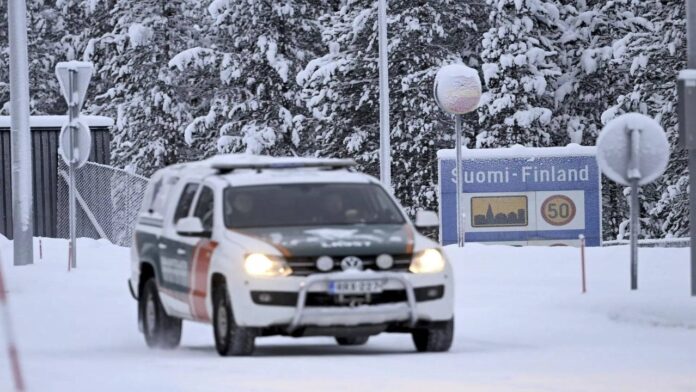Finland is taking decisive action by closing all its Russian border crossings, alleging Moscow’s deliberate facilitation of migrants entering the country. With seven out of eight road posts already shuttered due to a surge in November crossings, the government announces the closure of the last remaining crossing in the Arctic Circle for a two-week period.
The month saw a notable increase, with around 900 asylum seekers entering Finland from Russia, a stark rise from the previous daily average of fewer than one. Originating from countries like Morocco, Pakistan, and Syria, these migrants prompted Prime Minister Petteri Orpo to declare Finland’s determination to halt the influx, accusing Russia of orchestrating an “influence operation” and a “hybrid attack.” In response, the government has been progressively closing border posts.
The final closure will affect Raja-Jooseppi, the last road crossing, which will close by Friday, leaving only a rail crossing operational for freight traffic. Despite only three migrants entering Finland through Raja-Jooseppi on Monday and none on Tuesday, the government justifies the closures on the grounds of national security concerns.
The move, however, raises concerns from Finland’s non-discrimination ombudsman, who fears potential violations of the right to seek asylum under international law, especially given that the last remaining crossing is around 900 km north of the capital, Helsinki.
Officials emphasise that individuals arriving by boat or air can still seek asylum. Colonel Matti Pitkaniitty, a Finnish border guard officer, underscores legal obligations under international refugee law as a factor in the phased closure of the border, pointing to evidence of Russian officials aiding migrants.
There are concerns that the decision may lead asylum seekers to cross unofficial points, navigating potentially dangerous terrain. Pia Lindfors, the executive director of the Finnish Refugee Advice Centre, urges authorities to extend assistance on the Russian side of the border and uphold fundamental principles in dealing with migrants crossing illegally.




















